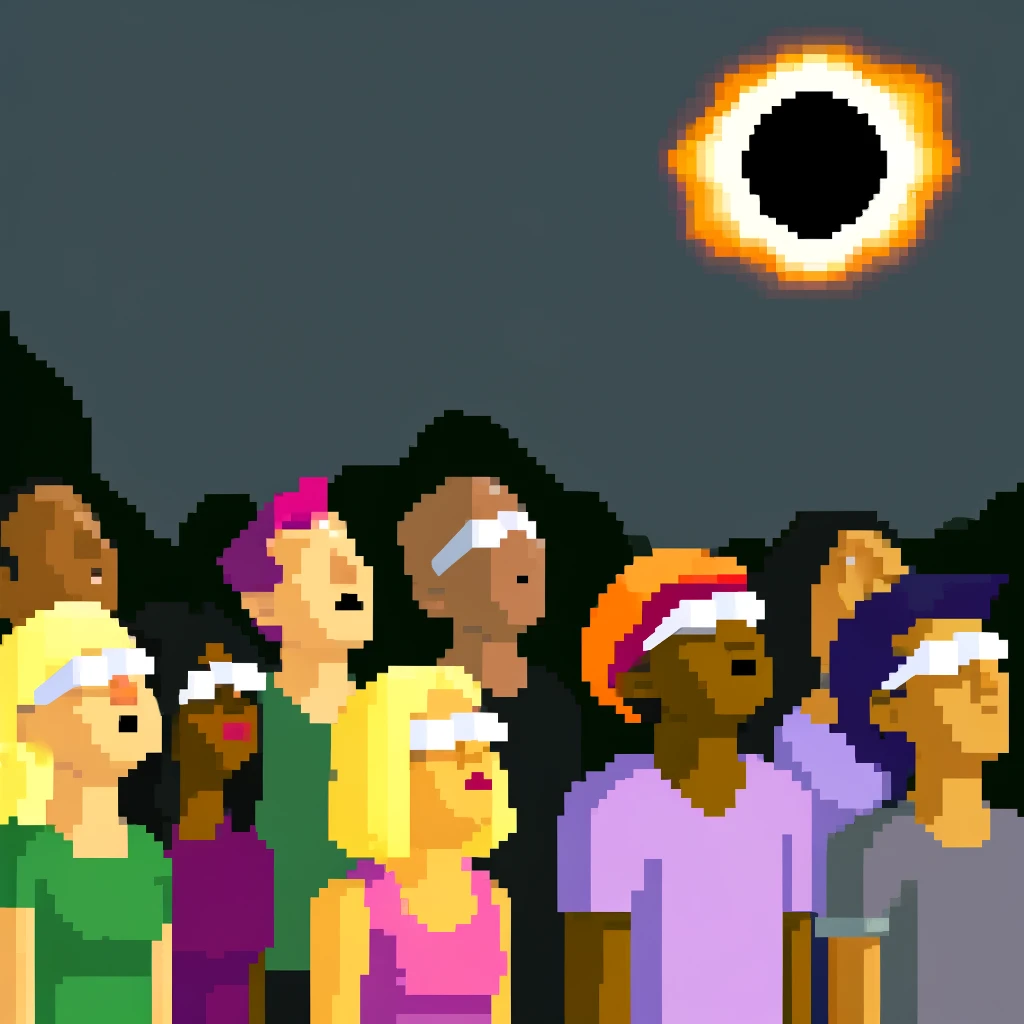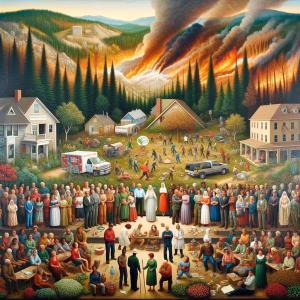
The Cosmic Connection: How a Solar Eclipse Sparks Human Unity
Humans have always gazed at the skies in awe, finding inspiration and even guidance. Solar eclipses, in particular, hold a unique place in our collective consciousness. The 2017 total solar eclipse in the United States was more than just a rare celestial event; it was a phenomenon with profound social implications. Imagine, across the country, millions of heads tilting upward in unison as day briefly turned to night.
Twitter and the Eclipse: A Study in Awe
A study led by Sean P. Goldy at the University of California, Irvine, utilized an innovative approach to understand the social impact of this eclipse. The team turned to Twitter, analyzing millions of tweets to discern the collective mood. Their findings were fascinating: individuals in the path of the total eclipse expressed greater awe and, consequently, displayed more humility, collective focus, and prosocial behavior compared to those outside the path. This observation was not just about the eclipse; it revealed how collective experiences, especially those invoking awe, can enhance our social fabric.
Why Awe Matters: The Social Fabric Stitched Together
The research highlighted a fundamental truth: experiences of awe, especially from celestial events like solar eclipses, significantly affect our social behaviors. Awe reduces our focus on ourselves and increases our attention towards others and the larger community. It fosters a sense of interconnectedness, humility, and the urge to engage in prosocial actions.
Implications for a Divided World
In a world often riven by division and self-centeredness, the findings underscore the importance of collective experiences in bridging divides. The social effects of awe, as illuminated by this study, might hold keys to fostering greater societal unity and empathy.
Final Thoughts
The study of the 2017 solar eclipse stands as a testament to the power of collective experiences in shaping human behavior and social cohesion. It suggests that in looking up at the vastness of the cosmos, we might find ways to come closer together on Earth. Let’s see if today brings the same.
Explore, Learn, and Grow with Science:
Step into the realm of discovery with ‘This Week in Science’! Tailored for both educators and science enthusiasts, our newsletter offers a weekly exploration of groundbreaking research and inspiring stories from the scientific community. By subscribing, you’re not just reading – you’re expanding your horizons in teaching and learning. Join us for free and start a journey that reshapes your engagement with science, fostering a more informed and passionate approach.
About The Author
Jon Scaccia, with a Ph.D. in clinical-community psychology and a research fellowship at the US Department of Health and Human Services, is renowned for his expertise in public health systems and quality programs. He specializes in implementing innovative, data-informed strategies to enhance community health and development. Jon’s significant contribution to public health is underscored by his creation of the R=MC² readiness model, which aids organizations in effectively navigating change. He’s currently freaking out about solar eclipse cloud cover.



